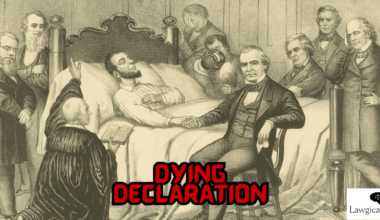The case of Donoghue v Stevenson [1932] AC 562 is a landmark Scottish legal decision that has gained global recognition for its profound influence on the law of delict in Scotland and the law of negligence in England, Wales, and other jurisdictions. The case established the modern concept of duty of care in negligence, laying the foundation for individuals to claim damages for harm caused by another’s negligence, even in the absence of a direct contractual relationship. The ruling emphasized that individuals have a responsibility to avoid actions or omissions that could foreseeably cause harm to others, shaping principles of law across multiple legal systems.
The case, famously known as the “Paisley Snail” or “Snail in the Bottle” case, is a cornerstone in legal studies that most law students encounter. It involved Mrs. Donoghue, who fell ill after discovering a decomposed snail in a bottle of ginger beer she had been served. This case is significant for introducing the concept of duty of care in negligence law. It established that manufacturers have a responsibility to ensure their products are safe for consumers, even when there is no direct contract between them. This ruling has had a lasting influence on negligence law, not just in the UK but globally.
What happened in Donoghue vs Stevenson?
On 26 August 1928, Mrs. Donoghue visited the Wellmeadow Café in Paisley, Renfrewshire, during the Glasgow Trades Holiday. Her friend purchased a bottle of ginger beer for her, which was served with ice cream in a float. The bottle of ginger beer, manufactured by David Stevenson, was opaque and sealed, making it impossible to see inside. After consuming part of the ginger beer, Mrs. Donoghue’s friend poured the remaining contents into the glass, revealing a decomposed snail. Mrs. Donoghue claimed to suffer from shock and severe gastroenteritis due to drinking the contaminated ginger beer. She sought medical treatment, consulting a doctor and being admitted to Glasgow Royal Infirmary for emergency treatment.
A significant legal issue arose as there was no direct contractual relationship between Mrs. Donoghue and the manufacturer, Mr. Stevenson, since the ginger beer was purchased by her friend. Nevertheless, Mrs. Donoghue contacted a solicitor, Walter Leechman, to pursue a legal claim for £500 in damages and £50 in costs. Despite a similar case, Mullen v AG Barr, having failed, her solicitor issued a writ against Stevenson on 9 April 1929. Donoghue v. Stevenson became a pivotal moment in legal history, establishing the principle that manufacturers owe a duty of care to consumers, even without a direct contractual relationship.
The case was initially brought before the Second Division of the Court of Session in Scotland. The Lord Ordinary issued an interlocutor, allowing the case to proceed after determining that the petitioner had presented a valid cause of action. However, a subsequent interlocutor, supported by the majority, overturned the previous decision and dismissed the case. Following this, an appeal was lodged in the House of Lords.
Also explore the doctrine of volenti non fit injuria
Issues raised in Donoghue v. Stevenson
The case raised several key issues:
- Did the manufacturer of the ginger beer know about the product defect that made it unsafe for consumption, and was this defect intentionally hidden from the consumer?
- Could the ginger beer be considered inherently dangerous, and did the manufacturer fail to provide adequate warnings to the consumer?
- Can a claim of negligence be valid despite the absence of a direct contract between the plaintiff and the manufacturer?
Donoghue vs Stevenson Judgment
The judgment in Donoghue v Stevenson is renowned for establishing the foundational principle of modern negligence law. The House of Lords, in a majority decision of 3-2, ruled in favor of Donoghue, determining that the manufacturer, David Stevenson, owed a duty of care to the ultimate consumer, even in the absence of a direct contract. This duty arose because the ginger beer was sealed in an opaque bottle, making it impossible for Donoghue or anyone else to detect the defect (a decomposed snail) before consumption.
The most significant part of the judgment came from Lord Atkin, who introduced the “neighbour principle,” explaining that individuals must take reasonable care to avoid acts or omissions that could foreseeably harm others. He defined a “neighbour” as someone who is closely and directly affected by one’s actions. Lord Thankerton and Lord Macmillan supported this view, emphasizing that manufacturers have a duty to ensure their products are safe when intended for human consumption.
Also check – Strict Liability and Absolute Liability
The minority, consisting of Lord Buckmaster and Lord Tomlin, disagreed with the majority’s reasoning, arguing that without a contractual relationship, there should be no duty of care owed by Stevenson. They believed that expanding liability without such a contract would create an overwhelming burden for manufacturers.
Ultimately, the majority decision paved the way for future claims of negligence by recognizing that manufacturers have a responsibility to consumers, irrespective of a direct contractual relationship. This case significantly shaped the law by confirming that individuals and businesses owe a duty of care to those who might be harmed by their actions or products.
Key Legal Principles in Donoghue v. Stevenson
- The “Neighbour” Principle
Lord Atkin introduced the “neighbour” principle in Donoghue v. Stevenson to clarify the scope of the duty of care owed to individuals. He defined “neighbours” as those who could be reasonably anticipated to be affected by another person’s actions. This concept is rooted in the doctrine of reasonable foreseeability, which holds that only individuals who are likely to be impacted by someone’s conduct can seek damages for any resultant harm.
Lord Atkin articulated this idea by stating, “You must take reasonable care to avoid acts or omissions which you can reasonably foresee would be likely to injure your neighbour.” He further elaborated on the legal definition of a neighbour, asserting that they are individuals who are closely and directly affected by one’s actions, such that one should have them in mind when considering the consequences of those actions.
- Duty of Care
Lord Atkin stated that “a manufacturer of products, which he sells… to reach the ultimate consumer in the form which left him… owes a duty of care to the consumer.” This means that manufacturers have a responsibility to ensure that their products are safe for all potential consumers. This landmark ruling established a crucial precedent, paving the way for enhanced consumer protection and the recognition of consumer rights.
- Negligence
Negligence is fundamentally linked to the duty of care established by Lord Atkin. The case illustrates that a manufacturer can be held liable for negligence if it can be shown that they failed to take reasonable care in ensuring the safety of their products. Specifically, negligence arises when a manufacturer produces a product that is inherently unsafe for consumers, particularly when the product is sealed and cannot be examined before use.
The principle of reasonable foreseeability plays a critical role in determining negligence. If a manufacturer can reasonably foresee that their actions—or lack thereof—could lead to harm to consumers, they may be found negligent if they do not take appropriate precautions to prevent that harm. In this context, the manufacturer’s obligation extends beyond the immediate purchaser to any ultimate consumer who may be affected by the product.
Thus, negligence in this case law encompasses not only the failure to act with care but also the responsibility to ensure that products are safe for consumption, thereby protecting consumers from potential harm.
Relevance to Indian Legal System
There are several decisions of the Indian Court, wherein the principles laid in Donoghue vs Stevenson laid the track. In the case of Union of India vs. United India Insurance Co. Ltd., decided on October 22, 1997, the Supreme Court of India addressed issues concerning negligence, the duty of care, and liability in the context of insurance claims. The judgment in Union of India vs. United India Insurance Co. Ltd. reinforces the principles established in Donoghue v. Stevenson regarding the duty of care and negligence. It underscores the responsibility of service providers to ensure the safety of their consumers and the legal implications of failing to meet this obligation. The case serves as a precedent in Indian law for similar future cases concerning negligence and the relationship between service providers and insurers.
Conclusion
Donoghue v. Stevenson judgment has laid down a very important decision on duty of care and law of negligence. It has been a landmark in the jurisprudence of consumer protection laws. If contractual agreement was made the basis of duty of care, no consumer would be able to claim damages from the manufacturer, leaving a wide scope of unhealthy practices for the manufacturer. The impact on the health of consumers would be of huge concern in that case. However, latter jurisprudence has focused more upon the rights of the consumer and have developed a rights based perspective to the relationship between manufacture and consumer.
The case summary on Donoghue vs Stevenson judgment has been simplified by Mr. Raman Verma, who is interning at Lawgical Shots and assisting the team to bring the most informational and valuable legal blogs for the legal fraternity.








